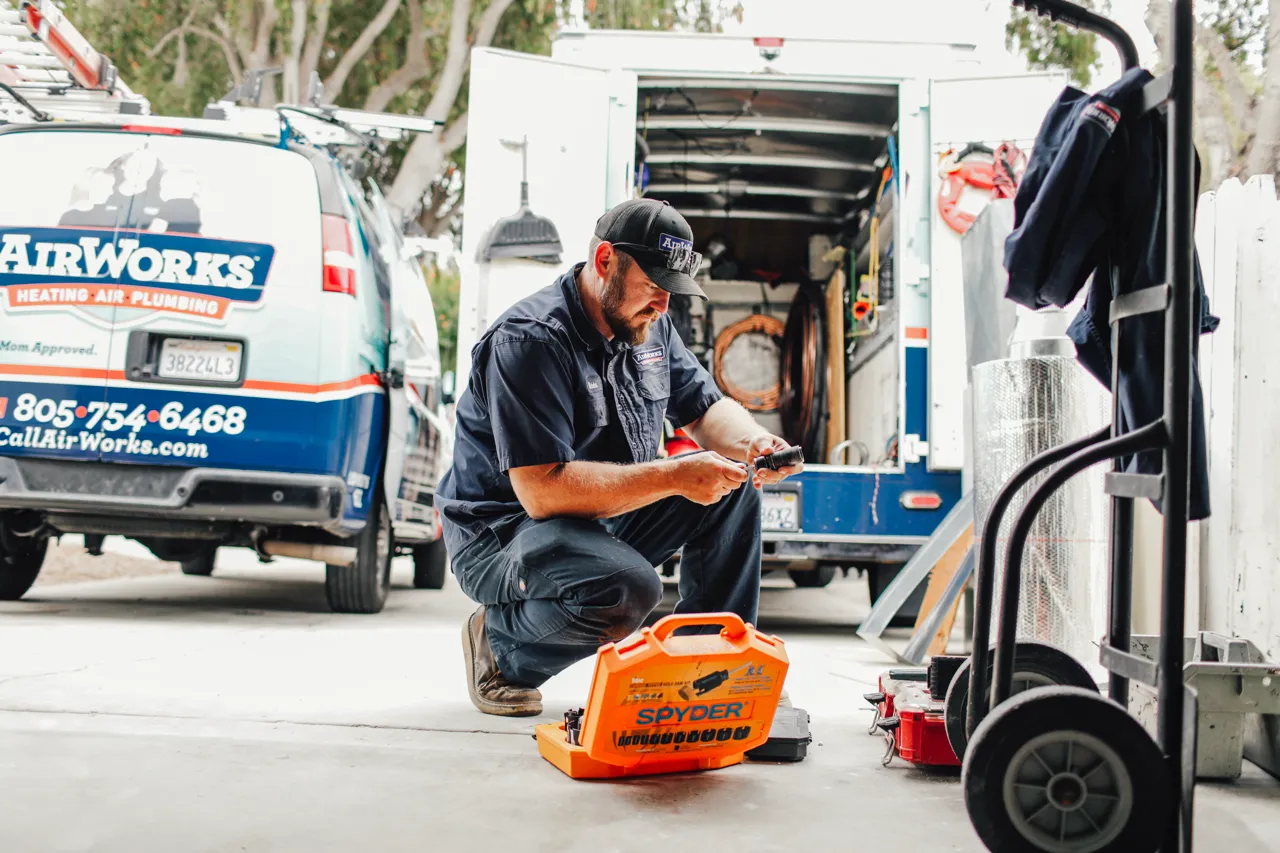An Essential Guide to Choosing the Right Water Heater
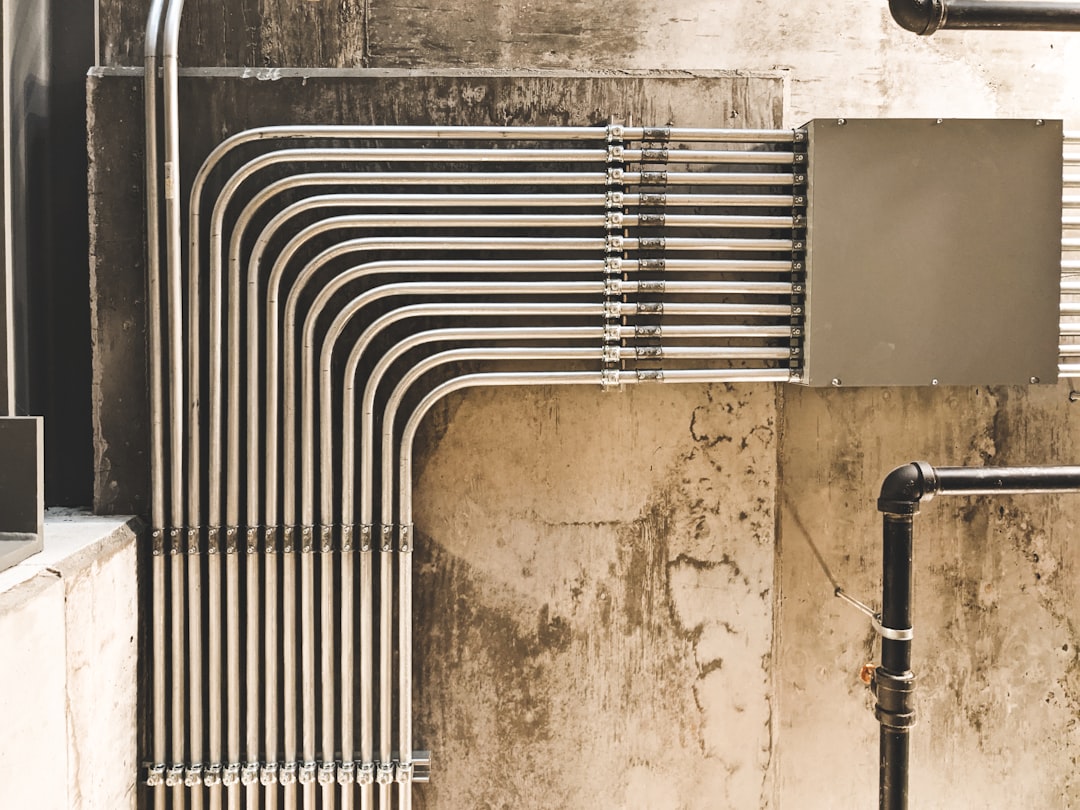
Why Choosing the Right Water Heater Matters for Your Home
A Water Heater is one of your home's most important appliances, accounting for roughly 15 to 20 percent of your household's utility bill. Whether you're dealing with an ice-cold shower or a leaking unit, selecting the right replacement can mean the difference between years of reliable hot water and costly repairs down the road.
Quick Water Heater Guide:
- Conventional Tank: 6-15 year lifespan, lower upfront cost, ready hot water supply
- Tankless: 20+ year lifespan, endless hot water, higher initial investment
- Heat Pump: Most energy-efficient electric option, moves heat instead of creating it
- Solar: Uses sun's energy, significant long-term savings in sunny regions
- Key Factors: Household size, fuel availability, energy efficiency ratings, installation requirements
Most water heaters last 6 to 15 years, with an average lifespan of about 11 years. The key is choosing a system that provides enough hot water for your family while being energy efficient to save you money over time.
Your choice affects daily comfort, monthly energy bills, and long-term maintenance costs. Gas water heaters generally cost less to operate but require proper venting. Electric models are simpler to install but may have higher operating costs. Tankless systems provide endless hot water but need adequate gas lines or electrical capacity. Making an informed choice balances upfront costs with long-term value and reliability.
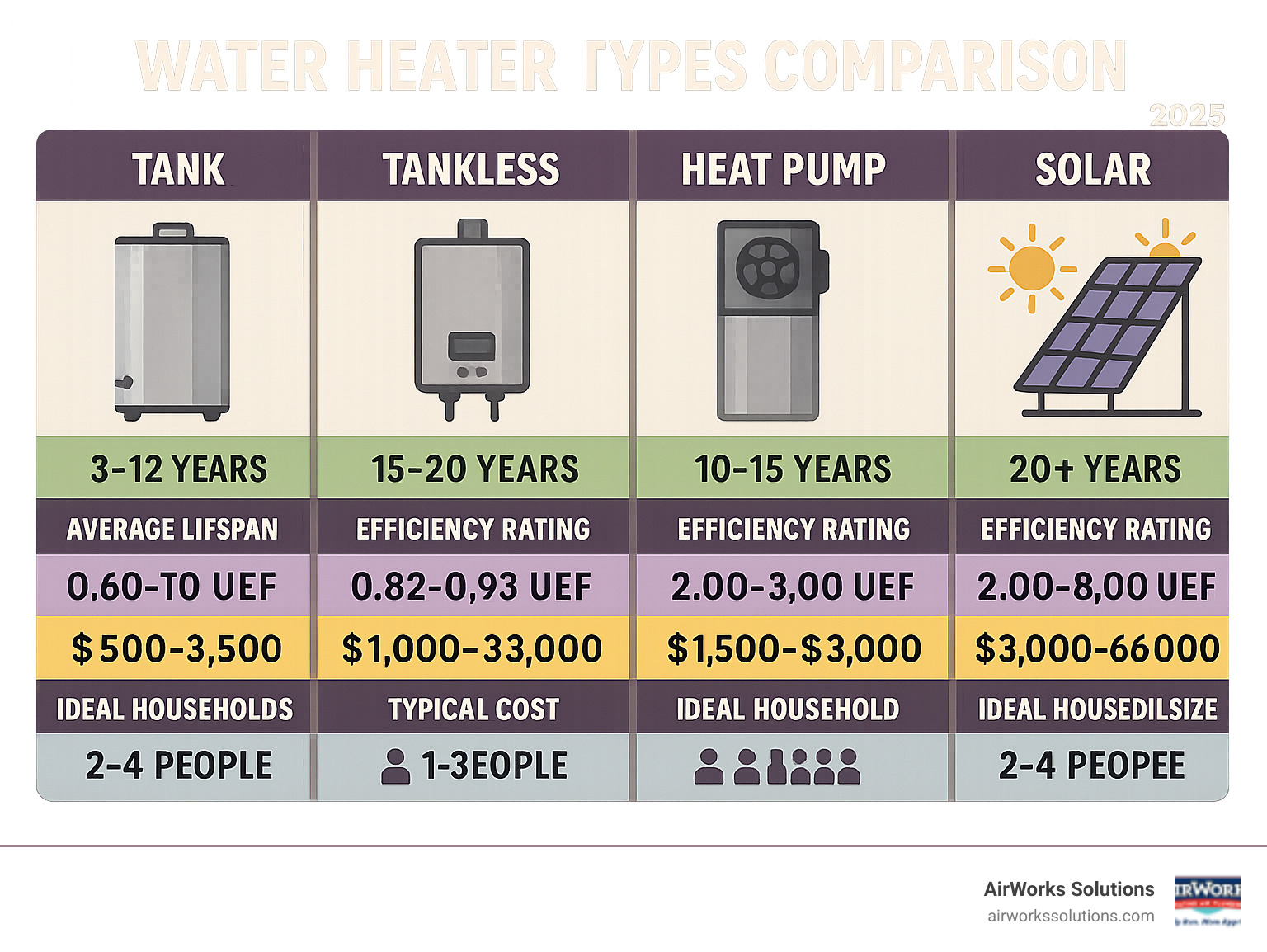
Key terms for Water Heater:
Understanding the Different Types of Water Heaters
Choosing a new Water Heater can feel overwhelming, but the options fall into a few main categories: conventional storage tanks, tankless units, and high-efficiency options like heat pump and solar systems. Each serves different lifestyles and budgets, so understanding their unique characteristics will help you make the right choice.
![IMAGE showing different water heater types side-by-side]
Conventional Storage Tank Heaters
These are the most common type of water heater, featuring a large insulated tank that keeps a reservoir of hot water ready for use.
Their main benefit is a ready reservoir of hot water, so it flows almost instantly when you turn on a tap. This is ideal for simultaneous use, like multiple morning showers. Another major advantage is their lower initial cost, making them a budget-friendly replacement option. Their simpler technology also means repairs are usually straightforward.
The biggest weakness is standby heat loss, as the unit constantly uses energy to keep the stored water hot. You also have a limited hot water supply; once the tank is empty, you must wait for it to reheat. These units have a shorter lifespan of 6 to 15 years (6-12 for gas, 10-15 for electric).
Tankless (On-Demand) Water Heaters
Tankless water heaters, or on-demand units, heat water instantly as it flows through the unit, eliminating the need for a storage tank.
The star feature is endless hot water, a game-changer for large families or homes with high demand. They are also highly energy efficient because they eliminate standby heat loss, which can lower utility bills. With a longer lifespan of 20+ years and replaceable parts, they are built to last. Their space-saving design is another bonus, as they can be mounted on a wall.
The main trade-offs are a higher upfront cost for the unit and installation, which may require electrical or gas line upgrades. They also have flow rate limitations, meaning a single unit might struggle to supply hot water to multiple appliances running at once.
High-Efficiency Options: Heat Pump & Solar
For homeowners who want to maximize efficiency, heat pump and solar water heaters are cutting-edge options.
Heat pump water heaters don't create heat; they move it from the surrounding air to the water. This process makes them incredibly efficient, often two to three times more so than conventional electric models.
Solar water heaters use collectors to capture the sun's energy and transfer it to your water supply. The environmental benefits are substantial, dramatically reducing your reliance on conventional energy.
Both options require a higher investment upfront, but many areas offer rebates and incentives that can significantly offset the cost. The U.S. Department of Energy's guide is an excellent resource for finding available programs. These systems pay off over time through long-term savings on energy bills.
How to Choose the Right Water Heater for Your Home
Choosing the right Water Heater requires considering your household size, water usage, available fuel sources, and budget. Your family's daily routines—like simultaneous showers or laundry loads—will guide you toward the best fit.
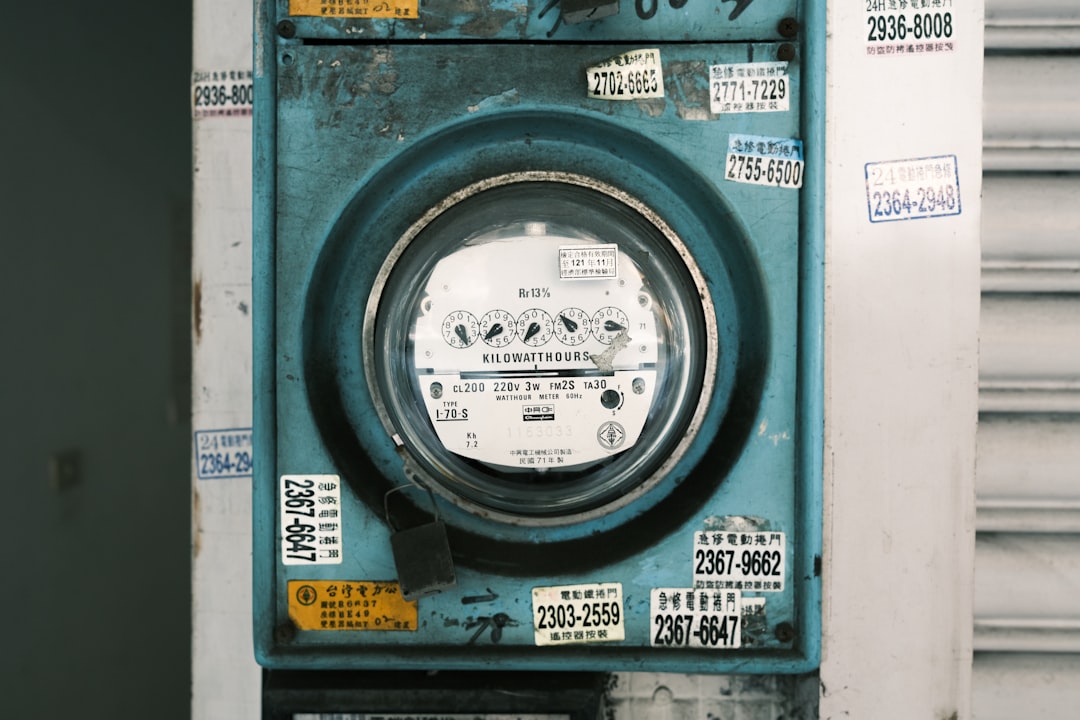
Sizing Your Water Heater Correctly
Correct sizing is crucial to avoid running out of hot water or wasting energy. An undersized unit won't meet your needs, while an oversized one increases energy bills.
For conventional storage tanks, focus on the First Hour Rating (FHR), which indicates how many gallons of hot water the heater can supply in one hour. Match the FHR to your household's peak hour demand. Tank capacity is also important, with most homes needing 30 to 60 gallons.
Tankless units are sized by flow rate (GPM) and the required temperature rise. The unit's GPM must be high enough to support all fixtures you might use simultaneously.
A general guideline by family size:
- 1-2 people: 30-40 gallon tank or a 2-4 GPM tankless unit.
- 3-4 people: 40-50 gallon tank or a 5-7 GPM tankless unit.
- 5+ people: 50-60 gallon tank or a 7+ GPM tankless unit.
Comparing Fuel Sources
The fuel your Water Heater uses impacts both monthly bills and installation. In the Sacramento area, the main choices are natural gas, propane, or electricity.
Fuel SourceUpfront CostOperating CostEfficiencyInstallation RequirementsNatural GasModerateEconomicalModerateGas line, proper ventingPropaneModerateHigherModeratePropane tank, proper ventingElectricLowerHigherModerateDedicated circuit, no venting
Natural gas is often the most economical choice for operating costs. It requires proper venting to exhaust combustion byproducts. Propane is a good alternative where natural gas is unavailable but has higher fuel costs. Electric water heaters have the lowest upfront cost and simplest installation (no venting), but typically have higher operating costs, unless you choose a high-efficiency heat pump model.
Understanding Efficiency Ratings
Efficiency ratings are key to long-term savings. Look for the Uniform Energy Factor (UEF)—the higher the number, the more efficient the unit.
ENERGY STAR certification indicates that a unit meets strict efficiency guidelines set by the EPA, leading to lower utility bills and a smaller environmental footprint. An energy-efficient Water Heater may cost more upfront, but the savings on utility bills can be substantial over the unit's lifespan. Since water heating is a major part of your home's energy use, even small efficiency gains make a big difference.
Lifespan, Maintenance, and Common Problems
A Water Heater won't last forever, but proper maintenance can significantly extend its lifespan and prevent unexpected failures. With simple care, you can keep your unit running efficiently for years.

Average Lifespan and Influencing Factors
Most tank water heaters last 6 to 15 years, averaging around 11 years. Tankless units often last 20 years or more. Several factors influence longevity:
- Water quality: Hard water causes mineral (sediment) buildup, which reduces efficiency and accelerates corrosion. A water softener can help.
- Maintenance: Regular care is essential. Neglecting it is the fastest way to shorten a unit's life.
- Installation quality: Professional installation is critical for proper function and longevity.
- Anode rod: In tank heaters, this sacrificial rod corrodes to protect the tank lining. It must be checked every few years and replaced when depleted to prevent tank failure.
Essential Maintenance to Extend Lifespan
A few simple maintenance tasks can prevent major problems and add years to your unit's life.
- Annual tank flushing: Flush the tank annually (or more with hard water) to remove sediment that forces the heating element to work harder.
- Check the anode rod: Inspect the anode rod every 1-3 years and replace it if it's heavily corroded.
- Test the T&P valve: Annually test the temperature and pressure relief valve to ensure it functions correctly, preventing dangerous pressure buildup.
- Set temperature to 120°F: This temperature is sufficient for most needs, prevents scalding, and reduces energy costs.
- Insulate pipes: Insulating the first few feet of hot and cold water pipes connected to the heater reduces heat loss.
Common Water Heater Problems and Solutions
Recognizing common problems early can prevent costly repairs.
- No hot water: For gas units, check the pilot light. For electric, check the circuit breaker. The issue could also be a faulty thermostat or heating element.
- Lukewarm water: This may indicate an undersized unit, sediment buildup, or a thermostat set too low.
- Rusty water: This usually means the anode rod is depleted or the tank itself is rusting from the inside, which requires replacement.
- Leaks: Never ignore leaks. While some are due to loose fittings or a faulty T&P valve, a leak from the tank itself means the unit has failed.
- Strange noises (popping, rumbling): This is often caused by sediment boiling at the bottom of the tank. Flushing the tank can solve the issue.
- Pilot light issues: If a gas pilot light repeatedly goes out, it could be a failing thermocouple or a draft issue that requires professional service.
Frequently Asked Questions about Water Heaters
Here are answers to some of the most common questions we hear about water heaters from homeowners in the Sacramento area.
How often should I flush my water heater?
We recommend flushing your conventional storage tank at least once a year. If your home has hard water, flushing twice a year is better. This simple task removes sediment buildup from the bottom of the tank. Sediment forces your heating element to work harder, increasing energy bills and causing rumbling noises. Regular flushing improves efficiency and extends the life of your Water Heater.
Is a tankless water heater worth the extra cost?
The answer depends on your household's needs. While tankless water heaters have a higher upfront cost, they offer significant benefits that can make them a worthwhile investment.
- Endless hot water: You'll never run out, no matter how many showers are taken back-to-back.
- Energy savings: They only heat water on demand, eliminating the standby heat loss of a tank, which lowers utility bills.
- Longer lifespan: They typically last 20 years or more, nearly double that of a traditional tank.
- Space savings: Their compact, wall-mounted design frees up floor space.
However, a single unit may have trouble supplying enough hot water for multiple simultaneous uses in a large household. We can help you assess your hot water demand to see if a tankless system is right for you.
What are the signs my water heater is about to fail?
Your Water Heater will often show signs of failure before it stops working completely. Look out for these red flags:
- Age: If your tank heater is over 10 years old (6-12 for gas, 10-15 for electric), it's in the high-risk zone.
- Running out of hot water quickly: This suggests failing heating elements or a burner.
- Rusty or discolored water: This is a clear sign of internal tank corrosion, which is irreversible.
- Strange noises: Popping or rumbling sounds indicate significant sediment buildup.
- Visible leaks or moisture: Any water around the unit is a serious issue. A leak from the tank itself means it's time for a replacement.
- Inconsistent temperatures: Fluctuating hot and cold water often points to a failing thermostat.
Don't ignore these warning signs. Addressing them early can help you plan a replacement instead of dealing with an emergency breakdown. If you notice any of these issues, call us for an honest assessment.
Conclusion
Choosing the right Water Heater is a key decision for your home's comfort and budget. By understanding your options, you can make an informed choice that will serve your family for years.
Remember to consider the main types: traditional tanks for lower upfront cost, tankless systems for endless hot water and efficiency, and heat pump or solar models for maximum energy savings. Proper sizing based on your family's needs is crucial to ensure you have enough hot water without wasting energy. Your choice of fuel type—gas, propane, or electric—will affect both installation and operating costs. Finally, paying attention to efficiency ratings like UEF and looking for the ENERGY STAR label will lead to long-term savings.
Regular maintenance, such as annual flushing, can significantly extend your unit's 6-15 year lifespan.
Since 2010, AirWorks Heating Air Plumbing has helped Sacramento area families find the right water heater solutions for their unique needs and budget. Our licensed and certified team is committed to providing honest, reliable service.
Contact us for professional water heater repair and installation and let us help you ensure your family never has to worry about running out of hot water again.

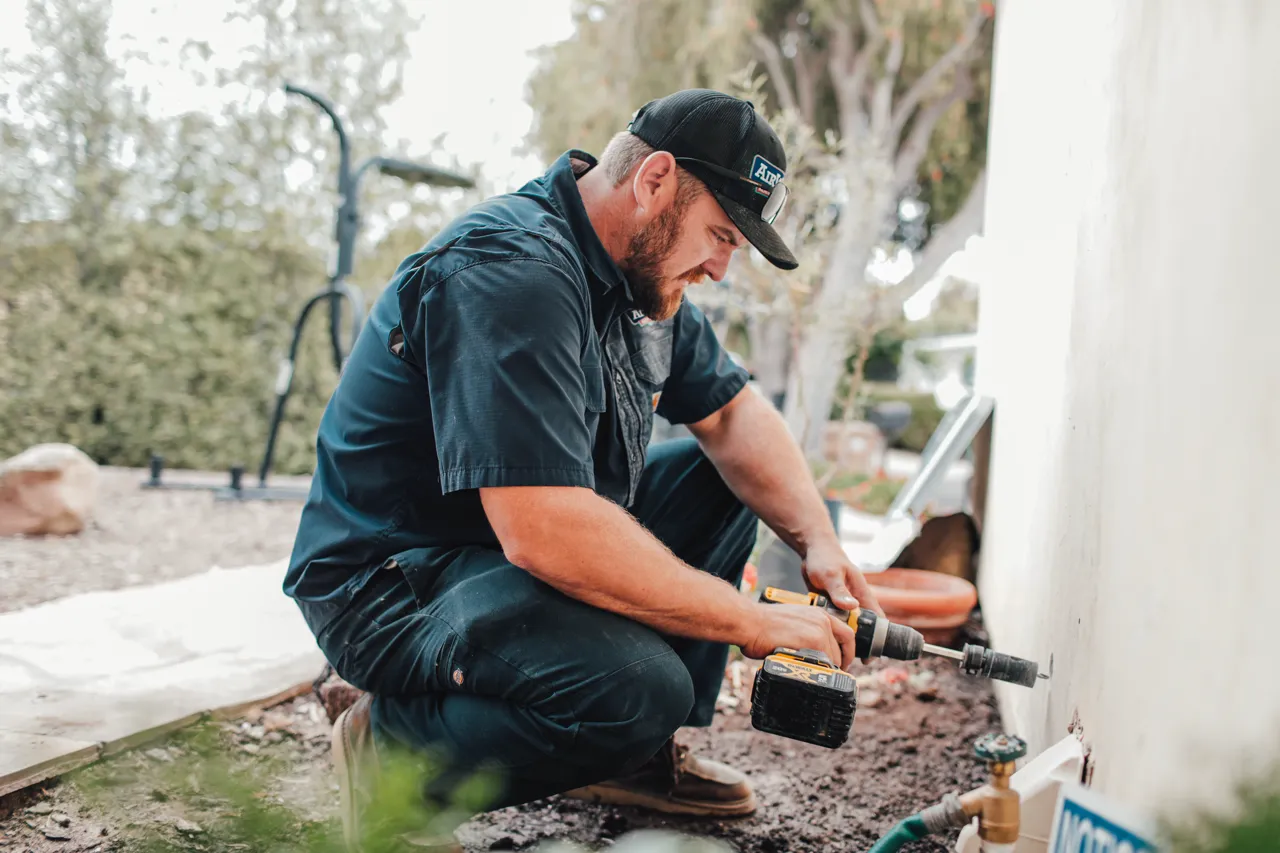
.webp)
